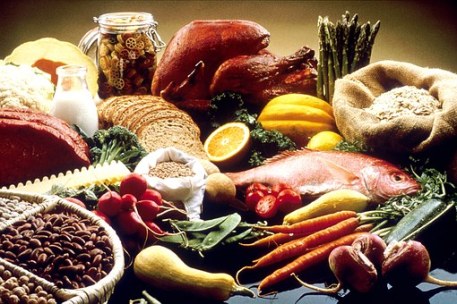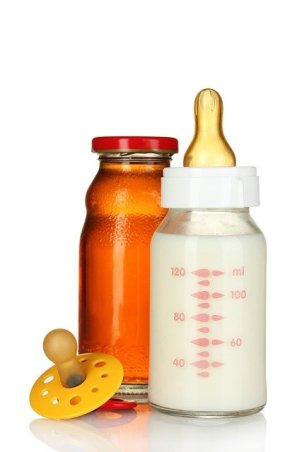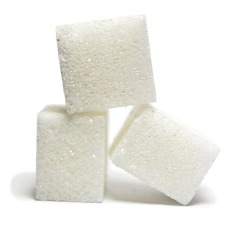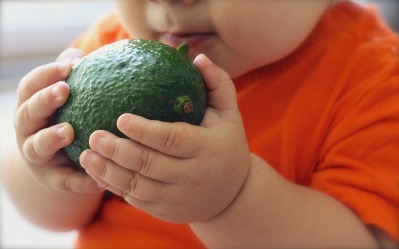
The Obesity Epidemic – Finding the point in the life cycle to intervene.
Recently news reports in the UK have shared the concern that number of men, women and children who are obese will overtake those of a healthier weight. Daily Mail – Obese people set to outnumber those of a healthy weight by 2030
When I weighed 330lbs and was classified as morbidly obese in 1995, it was unusual for me to be in the same room as someone else of the same weight. In fact looking back at photographs, I stood out like a sore thumb. Now when you look at a class photograph or a crowd of people across the age groups there has clearly been a shift.
I am not into fat shaming. I lived not only with the weight but the health issues that accompanied this burden on the body. Beginning Thursday this week I am sharing my first book Size Matters, Especially when you weigh 330lbs. It is the journal of my discoveries as I studied medicine and nutrition, designed my health eating plan and lost 150lbs in 18 months. However, in addition to that series I am going to also rerun this series from 2019 looking at where we as individuals and the government might find the point in the life cycle to intervene to prevent what will be an obesity epidemic.
As we continue to hear about the obesity problems of children, teens and adults, it is clear to me that it is a vicious circle without a definitive time in a human’s life to intercede and correct the course we seem to be on.
Obesity is one of those health issues that is complex with physical, mental and emotional elements.
In my career over the last twenty-four years, I have worked with teenagers and young adults whose obesity can be laid firmly at the door of industrialised food, sugars and the fast food industry.
However, it is not just about what they are eating today, but in many cases what their mother ate even before they were born, during her pregnancy and in the recommended (by health professionals included) new born formulas and baby foods.

At twenty-five years old, I found myself responsible for the nutritional health of 120 boys and girls (8-13) in a private school. This was almost 45 years ago and the industrialised food industry was already well established.
I had been cooking for my own business for the previous two years often preparing lunches for 100 hungry lunchtime customers. On my arrival at the school, I found that because there had not been a cook in residence for a term, the majority of meals were frozen entrees that contained 10 portions. The container was placed on each table of students and it was served up by a prefect. There were some potatoes and a vegetable served with it but it was not the best option nutritionally. The headmaster and his wife recognised this, hence my arrival.

Within the month I had done deals with local farmers for fresh eggs and fruit, and was buying meats, chicken and fresh vegetables, with only the staples such as rice, flour, pasta etc being delivered in a packet.
I also introduced the children to some more adult foods such as beef bourguignon and Coq au Vin.. which did lead to calls for ‘more of the sauce please’!
They all had a cooked breakfast each day as well as a bowl of porridge or weetabix. I got cooking 140 (with staff) fried eggs in six pans in 15 minutes, down to a fine art, at the same time as grilling 140 pieces of wholegrain toast, Lunches were meat, chicken and fish on Fridays (with some sauces or gravy), with plenty of vegetables, and either rice, pasta or potatoes. There would be a hot pudding such as apple pie and custard.
There was a high tea with sandwiches or beans on toast, or sardines etc, with cake and fruit. There was cocoa before they went to bed. I would finish the day with 10 – 20 staff cooked suppers.
I had the ‘cook from scratch’ approach to food even then, and even more importantly, as far as the school bursar was concerned. I shaved £2,000 off the catering budget in the first term. Forty five years ago that was a substantial amount of money and proves that even then, packaged food was not only nutritionally inadequate (particularly for growing children) but far more expensive than the ‘cook from scratch’ approach.
So combined with my work as a nutritional therapist in the last twenty-four years, I can draw on 45 years experience of working with food with all age groups from pre-conception to 95, to witness the impact of nutrition on the body, and the diseases directly related to diet. In particular, the reason why even as a teenager my weight fluctuated and how despite my knowledge and determination to be a healthy weight, I still became morbidly obese by the age of 45.
If you read Size Matters the Sequel beginning tomorrow, you will discover the physical, mental and emotional elements to obesity I established had led to my health issues, but with regard to preventing this in others, we need to identify at what point there is a focused intervention to shut down the cycle.
Research lays the cause of at least 75% of diseases at the door marked lifestyle with the food we are eating on a daily basis and our reduced activity.
When do you intervene in the life cycle, to counteract what is fast becoming a life threatening epidemic, and increasingly a huge burden on the health services?

Image by Manuel Alejandro Leon
It is actually too late to start at birth, since the food the mother has consumed prior to becoming pregnant, and during the nine months will have a lifelong impact on her child’s weight and health. I will cover fertility and pre-pregnancy diet later in the series
If the mother to be is already overweight, consuming in excess of recommended daily intakes of sugar and unhealthy fats from industrially manufactured foods, immediately that she becomes pregnant, it will result in an unhealthy start to the fetal development.
During pregnancy, if the mother does not drastically reduce these two components of her diet, and introduce health alternatives such as good fats, plenty of fresh vegetables and some fruit, moderate carbohydrates and protein from lean meat, poultry, fish, and adequate vegetable sources, the baby will be born already addicted to sugars and undernourished.

Breastfeeding
Breastfeeding a baby is as natural as you can get, and for millions of years that was the norm. And immediately after birth is a critical phase, when the vital immune boosting Colostrum is produced by a new mother for the next 48 hours. This encourages the digestive system to begin functioning, kick starts the immune system to protect from viral and bacterial infections as well as providing essential nutrients.
Breastfeeding is now at its lowest in the UK for a number of reasons, including ‘expert’ insistence on getting a baby into a feeding and sleep routine as quickly as possible, rather than every two hours that the lower volume breast feeding requires. Also there is the social stigma of breastfeeding in public places. To be fair, it does require some discretion, but every woman should be able to breastfeed her baby when it is needed. Since that is usually every two hours, it is difficult to manage if you are outside of your home environment.
It used to be that babies would be breastfed until they were 18 months old, and in some cases older, especially if supplemental to a restricted access to food. Now it seems that six months is the average, with only 1 in 200 women breastfeeding their baby after a year old.
There are of course mother’s who cannot breastfeed physically, and this means feeding the baby with one of the many formulas on the market.
This is where the multi-billion baby food industry kicks in to take advantage of this reduction in providing a baby with its most natural food, and according to a recent report, if your baby was already addicted to sugars at birth, you can satisfy any cravings with sugar laden jars of pureed baby foods. In addition many will contain the highly unhealthy corn syrup.
That combination of added refined white sugar and corn syrup in baby formula is the number one cause of obesity in babies and children

‘Research by the World Health Organisation suggest there are an additional 124 million children and adolescents worldwide. While just under 1% of children and adolescents aged 5-19 were obese in 1975, more 124 million children and adolescents (6% of girls and 8% of boys) were obese in 2016′
These additives and other chemical elements such as preservatives, continue to be introduced into the diet when babies are weaned onto pureed foods and then semi-solids.
I am afraid that however many times it says on the tin of formula or on the jar of baby food that it is all natural, it does not necessarily mean healthy natural food that our baby will thrive on. The sugar began life as natural as did the corn sugar, but they are mutated by the time they get into the food chain to toxic elements.
They do not have any place in a baby’s diet nor adults for that matter.
The trouble is that marketing ‘experts’ will tell you that you are safe feeding your baby their formula and semi-solids.. but what about the nutritional experts?
A good start was made in Europe when all sugar sweetened formulas were banned in 2009. There are now more brands that are using lactose to sweeten and the number of organic brands of formula are on the increase. However, for many new mothers, especially those on a budget, the price of these healthier forumula’s is much higher than the highstreet brands.
Here is a post on organic brands, but I do suggest that you check out the reviews of the products: Best Organic Baby Formula 2022
Homemade baby food
I know that immediately there are going to be issues of time and convenience brought up.. But having checked the cost of jars of baby food and their contents, I can say with certainty that you can produce a week’s worth of baby food, from scratch that is healthier and cheaper than any on the shelves, and in less time than it takes you to do the weekly shop! More about that later in the post.

Parents are being ‘misled’ by baby food companies marketing sugar-packed baby meals and snacks as healthy, new report warns
Analysis of thousands of baby products showed high levels of added sugar
WHO Europe said it’s a danger for babies’ teeth and could lead to obesity
More than 30 per cent of calories in half of the products came from sugars
Sugars accounted for 70 per cent of the food calories in fruit purees
The World Health Organisation has called for a ban on added sugar in baby food and warned against ‘misleading’ health claims on labels.
Analysis of thousands of baby products in Europe, such as pouches and jars, revealed high levels of sugar across the board, even in savoury products.
It could cause baby teeth to rot and increase the risk of obesity and related diseases by giving the child a ‘sweet tooth’, the WHO warned.
Even though some sugars are naturally present in fruits and vegetables, it’s a ’cause of concern’ that more is added, a report said.
The organisation is one of many which have recently urged a wipe-out of added sugars and sweeteners in foods for children under three years of age.
You can read the rest of the post HERE
There are a number of sites that provide a step by step guide to weaning a baby from the bottle at six months, but I notice that on many of them their first preference is fruit juice and then pureed fruit.
- I would prefer to see this list vegetable led and you can make a clear vegetable soup by cooking carrots, broccoli, sweet potato, courgettes (zucchini) and parsnips together, keeping the water they are cooked and sieving out the juice from the vegetables…don’t add salt or sugar. Then as the baby moves onto semi-solids you can puree the vegetables themselves. You can freeze in portions making enough for several days.
- Avocados are excellent as a first food at six months as they contain healthy fats and a quarter of a medium avocado is great fist sized healthy addition to the baby’s diet.
- If you do give your baby fruit juice try apple without any added sugar and the same with pureed apple.
- Pears are also good to introduce as they are one of the least allergenic fruit.
- Papaya and bananas are also easy to digest and bananas are useful to take with you when traveling as well as to ease any stomach upsets.
- Baby porridge makes a good start to the day, and you can also introduce well cooked baby rice into the savoury dishes.
- From seven months you can start to add some pureed chicken or cod.

I found this website which lists the top ten mother and baby sites including one that has some great baby food recipes: 10 Best Parenting Websites
Here is just one of the videos on Youtube where mothers share their organic recipes and tips for first baby foods and as you will see towards the end of the video – the equivalent amount organic baby food in the supermarket works out at three times as much as the homemade, and despite being organic the shop bought will still have preservatives added. Uploaded by DoItOnaDimeFAMILY
If you are like me and of an age where pureed food might be an option in a few years!!! Then please pass this on to the younger generation who might help to turn around this tide of obesity that is sweeping our countries.
I am aware that many young mothers will still follow the path of using the cheapest formula and baby food options on the shelf through necessity, but I hope that education through the prenatal and new mother classes will help them discover the healthier and often cheaper options and how to give their babies a great start in life.
Next week – Breakfast clubs, School meals, Domestic Science and meals at home.
©Sally Cronin Just Food for Health 1998 – 2024

I am a qualified nutritional therapist with twenty-five years experience working with clients in Ireland and the UK as well as being a health consultant on radio in Spain. Although I write a lot of fiction, I actually wrote my first two books on health, the first one, Size Matters, a weight loss programme 20 years ago, based on my own weight loss of 154lbs. My first clinic was in Ireland, the Cronin Diet Advisory Centre and my second book, Just Food for Health was written as my client’s workbook. Since then I have written a men’s health manual, and anti-aging programme, articles for magazines, radio programmes and posts here on Smorgasbord.
If you would like to browse my health books and fiction you can find them here Sally’s books and reviews 2024
You can buy my books from: Amazon US – and:Amazon UK – Follow me :Goodreads – Twitter: @sgc58 – Facebook: Sally Cronin – LinkedIn: Sally Cronin
As always I look forward to your comments and if you have any questions don’t hesitate to ask them.. thanks Sally.

Pingback: Monday Musings…4th July 2022… | Retired? No one told me!
Pingback: Smorgasbord Blog Magazine Weekly Round Up – June 27th – July 3rd 2022 – Chart Hits 1998, Roberta Flack, Podcast Story, #Waterford 1930s, Reviews, Guest Posts, Health and Humour | Smorgasbord Blog Magazine
I think everyone should read your article, Sally. What you did to those 120 boys and girls changed their lives. Every cycle of their life is important though. It’s like chicken and egg. I feel so sad when looking around with chubby kids and teenagers. The clothing industry is redefining the sizes of clothes. When I buy small, it looks large to me.
My daughter breastfed the two girls until they turned one year old. She didn’t buy baby food. The girls always eat what they eat. They love avocado, carrots, peas, and berries of all kinds. They have raspberry bushes and the kids eat them faster than they can pick.! 🙂 Nora ate too much and got stomach once though.
LikeLiked by 1 person
Wonderful that your daughter has adopted that approach Miriam and it is creating such a wonderful platform for the girls in their future. And strawberries were my downfall as a child lol.. not as keen on them now. ♥
LikeLiked by 1 person
My daughter and her husband are vegetarians. But they let the girls eat what the preschool provides. I love blueberries the most, and cherries also. ❤
LikeLiked by 1 person
Fantastic a good idea as they are growing and need such a wide spectrum of nutrients..♥
LikeLiked by 1 person
I heard that if they don’t try certain food, they may develop allergic reaction later.
LikeLiked by 1 person
It is the working theory and I tend to agree.. the same can be said for being out in nature as exposure to plants and pollens etc help with that form of allergy too.. ♥
LikeLiked by 1 person
This is such an important topic and you lay out the information brilliantly Sally. Thank you, hugs, C
LikeLiked by 1 person
Thanks very much Cheryl..xx
LikeLiked by 1 person
Your story is incredibly inspirational, Sally. Yes, fat-shaming doesn’t accomplish anything except make people feel worse, which often leads to eating disorders.
It took retirement for me to start taking care of myself. I’m grateful for the second chance, and I hope others don’t wait as long as I did.
LikeLiked by 1 person
You have done an amazing job Pete. I also waited too long to do something about it but it is never too late to make the changes.. hugsxx
LikeLiked by 1 person
Such an important article, Sally. Toni x
LikeLike
A most interesting post, Sally. Looking back on my pregnancies and births, I realize I knew so little. But I did breastfeed both children past one year, so at least I did something right. And I never bought processed baby foods. I made my own. But that was over 40 years ago. Things have changed so much. Thanks for this thoughtful post.
LikeLiked by 1 person
Sounds like you did it very well Jan and your children and grandchildren are testiment to that.. a great start in life..♥
LikeLike
FANTASTIC post, Sally! I ate as healthy as I knew how when I was pregnant because I was so afraid of gaining too much weight. I breastfed until my son naturally weaned himself off at thirteen months. And I’ve cooked healthy food using organic and grass-fed meats, fruits, and vegetables. My son gets some snacks and cookies, but he eats well for the most part. He is fit and athletic and has very little body fat on him. It always saddens (and angers) me when I see obese kids. Their parents have set them up for a lifetime of struggles. 😥
LikeLiked by 2 people
Great job Yvette and a wonderful start in life for your son and also for you as a young mother. What they sometimes don’t realise is how much nourishment a developing fetus requires and if them other is not taking in an adequate diet then it takes the toll on her body.. ♥
LikeLiked by 1 person
I was luckily able to breastfeed all my babies although I did struggle with the first one as I had mastitis which cut short the amount of time I was able to feed her…I also made all my baby food and the children ate with us and at the same time as us when they were a little bigger…Good sound advice, Sally as always Hugs xx
LikeLiked by 1 person
Sorry about mastitis Carol that was vicious, especially when you want to breast feed. I knew you would have got it down.. ♥♥
LikeLike
It was Sally my mother bound me in strips of linen… The old fashioned way. ❤️❤️
LikeLiked by 1 person
Very effective ♥♥
LikeLiked by 1 person
Great post and information, Sally. I struggle with weight and found taking processed sugar out the hardest thing I’ve ever done. I agree about a baby’s diet. I wish I had been educated back then with that.
LikeLiked by 1 person
Thanks Denise.. it is hard to remove all processed sugar as with most creatures we love the sweet stuff. But as you say it is the processed sugars that have infiltrated our food products that are the hardest to give up.. hugsx
LikeLike
These are shocking statistics, Sally – and a wake up call for me as my weight has crept up since the pandemic started. ❤
LikeLiked by 1 person
It is about finding a balance and not always easy. I know that I am not as active as I used to be… the last two years plus has sapped us of our mojo and tough to get it back. One step at a time..♥
LikeLiked by 1 person
My mojo seems to have gone into hiberntion…
LikeLiked by 1 person
Let’s see if we can’t entice it out to play Alex lol..hugsx♥
LikeLiked by 1 person
Excellent article, Sally. Thanks for sharing. Hugs
Reblogged on Improvisation – “The Art of Living”
https://williampriceking.tumblr.com/
LikeLiked by 1 person
Thanks very much William and for sharing…hugs xx
LikeLike
HI Sally, this is a very good article. I breast fed both my boys and I made most of their food. They always ate with us as a family so we never had a children’s table or children eating at different times. It was always three meals a day with a few healthy snacks. Unfortunately, all the cortizone Michael has needed over the years has caused his weight to fluctuate up and down. Last year when he stopped breathing in an operation and was in intensive care for 2 days was very had for his health. He had two anesthetics and it wreaked havoc with his weight and skin. He is coming right now but it has been a struggle. Mind you, he is alive and doing okay which is better than the alternative, even if he is a little overweight.
LikeLiked by 2 people
Robbie, that sounds absolutely terrifying!
LikeLiked by 1 person
I know you have an excellent diet Robbie and Michael’s weight is related to the cortizone which makes it challenging for you both. As you say he is alive and doing okay which is far better than the alternative. Keep doing what you do… ♥♥
LikeLiked by 1 person
Excellent series Sal, with such important information. Back in the day when you were feeding children, they didn’t know how lucky they were. Sadly, with the high cost of even scratch ingredients these days, I do hope expectant mothers take heed. The fact that corn syrup is added to baby food is almost a crime! ❤ xx
LikeLiked by 2 people
Everything seems to have escalated in price very fast and looking at the cost of babyfood on the shelves I have no idea how you could sustain buying it for very long. So much conflicting advice out there for young mums, particularly first time.. ♥
LikeLiked by 1 person
Truth. That’s why it’s so important for us to do our own homework. And you’re information is valuable. ❤
LikeLiked by 2 people
♥♥
LikeLiked by 1 person
Reblogged this on Pattys World.
LikeLiked by 1 person
Thanks for sharing Patty. hugsxx
LikeLike
Your book really had helped me in the past, Sally! I lost over 30 kg taking you as role model. Beeing honest, i was not a cook and had alldays food around me. I was more an investigator of food. Lol xx Michael
LikeLiked by 2 people
You have done an amazing job Michael and I know what willpower is needed for such an impressive weight loss.. delighted to have been of any assistance.. hugsxx
LikeLike
Wow, Michael! Well done!
LikeLiked by 1 person
Reblogged this on NEW BLOG HERE >> https:/BOOKS.ESLARN-NET.DE.
LikeLiked by 1 person
This is a great introduction to your series, Sally. Begin at the beginning, just like babies do. I knew it was time for me to shed some weight when I saw a photo of me at a family reunion. I looked much bigger than I had realized.
LikeLiked by 1 person
Unfortunately the camera is very unforgiving… Glad you enjoyed…hugsx
LikeLiked by 1 person
I try to stay as far away from cameras as I can.
LikeLiked by 1 person
Me too lol.. and mirrors most mornings..xx
LikeLiked by 1 person
Looking forward to the series Sally. The whole infant food industry has a lot to answer for in my book. None of it is easier, neither the formulas nor the baby food, and in addition to the health risks, it is all so expensive!
LikeLiked by 1 person
Thanks Darlene.. the marketing departments are in charge and they tell you whatever they think you want to hear when it comes to your baby.. healthy, low fat, low sugar, nutrient packed… when nature already has created the best. I appreciate that some women cannot breast feed but there are better alternatives than what is generally available on the supermarket shelves. xxx
LikeLiked by 1 person
The fast food industry and advertising are to blame, as is ignorance of healthy eating by young mothers-to-be. So many of them prefer burgers and chips to lean meat or fish (without batter) and vegetables.
LikeLiked by 2 people
either that or they cut out complete food groups without any thought of the consequences.. xx
LikeLiked by 2 people
Yes. They need to read your blogs on proper nutrition, Sally. x
LikeLiked by 1 person
Looking forward to following this.
I’m certainly overweight but, as many of my friends comment, I don’t overeat.
I’m obviously eating the wrong things.
LikeLiked by 1 person
Thanks Sue…. or not enough even…certainly you are active enough with teaching, zumba and running around after your grandson… ♥
LikeLiked by 1 person
THANK YOU for sharing your expertise/wisdom regarding nutrition, Sally! I wish everyone on planet earth could read your blog. It is mind-boggling how the corporatization/industrialization/commodification of our planet has created these insidious health challenges. It is also mind-boggling how interconnected so many health issues are… such as our over-consumption of meat and the runoff created by factory farms (which contaminates the health/balance of vast ecosystems downstream). Please continue educating us!
LikeLiked by 3 people
Thanks Will that is very kind of you. I just want to do all I can to make sure people do not end up like I did 30 years ago without anywhere to turn and with only a few years ahead of me. ♥
LikeLike